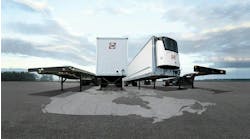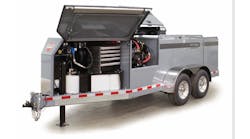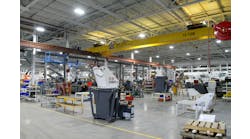In comments submitted June 20 to the U.S. Department of Commerce, MEMA warned again that policy changes that prevent or encumber motor vehicle parts suppliers’ ability to obtain certain types of materials—in this case, specifically aluminum—could jeopardize production of critical products made for the U.S. defense industry and could destabilize a growing U.S. manufacturing job base. MEMA specifically urged that imports from Canada be excluded from the action.
“Our industry is closely related to the U.S. defense industry,” said MEMA President and CEO Steve Handschuh. “Our member companies provide components and parts to vehicle manufacturers purchased by the defense industry, as well as replacement parts and systems for maintenance and repair. Just like the vehicles purchased by individual consumers, technological and material innovations by our member companies have resulted in safer and more efficient products for the U.S. defense industry. Adjustments to aluminum imports that prevent our members from obtaining the type of aluminum they need in a timely manner or cause increases to production costs would jeopardize our ability to manufacture in the United States and to provide these critical products to the U.S. defense industry.”
“There is no doubt that disruption to our members’ U.S. manufacturing operations would be detrimental to the national security of the United States,” said MEMA Senior Vice President of Government Affairs Ann Wilson in the comments. “Adjustments to aluminum imports that impact the production of vehicles and equipment provided to the U.S. defense industry would directly and adversely impact the U.S. defense industry by limiting or eliminating the supply of such vehicles and equipment. In addition, MEMA member companies obtain foreign aluminum from countries which are allies of the United States, and it is in the U.S.’s national security that our allies remain economically stable.”
Since the motor vehicle parts supplier industry relies heavily on an integrated supply chain, MEMA argues that changes to import rules for critical materials such as aluminum and steel could increase costs and make certain forms of material manufactured only outside of the U.S. difficult to obtain. Proposed changes to import rules for steel and aluminum, or “adjustments,” could include quotas, tariffs, taxes, or other policies that impact steel imports.
MEMA strongly contends that that changing steel and aluminum import rules would hurt the largest sector of manufacturing jobs in the U.S., putting American jobs – and the nation’s economic security – at risk.
Vehicle suppliers are the largest manufacturing sector in the United States directly employing over 871,000 Americans in all 50 states plus the District of Columbia. Together with indirect and employment-induced jobs, the total employment impact of the motor vehicle parts manufacturing industry is 4.26 million jobs. Nearly $435 billion in economic contribution to the U.S. GDP is generated by the motor vehicle parts manufacturers and its supported activity. In total, motor vehicle parts suppliers contribute more than 77 percent of the value in today’s vehicles.








